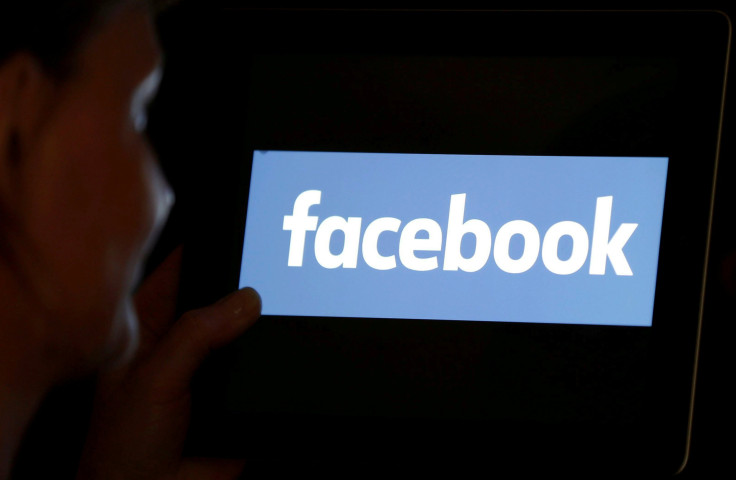Facebook Investors Shrug Off Slowing Growth As Zuckerberg Outlines The Future

Following last quarter's gut-wrenching earnings sell-off, social networking conglomerate Facebook (NASDAQ:FB) just reported mixed third-quarter results. Revenue jumped 33% to $13.73 billion, with net income rising 9% to $5.1 billion, or $1.76 per share. That top-line result slightly missed the market's expectation of $13.77 billion in sales, but the bottom line easily crushed the $1.46 per share in profit that analysts were modeling for.
This article originally appeared in the Motley Fool.
Top-line growth is rapidly decelerating, but Facebook has been up front with investors to expect that. "Our total revenue growth rates will continue to decelerate in the second half of 2018," CFO Dave Wehner said in July. Fortunately, there are other reasons why shareholders are optimistic about Facebook's future.
Headline metrics
Worldwide monthly active users (MAUs) now stands at 2.27 billion, including 1.5 billion daily active users (DAUs). Facebook is still feeling the fallout from GDPR, the broad privacy regulation rolled out earlier this year in Europe, which has hurt its user metrics in the European Union.
Facebook had introduced a new metric last quarter, familywide audience, which is now 2.6 billion, up from 2.5 billion in the second quarter. This figure represents the number of MAUs that use Facebook, WhatsApp, Instagram, or Messenger, deduplicating users that would otherwise be double counted when looking at the services separately. Familywide DAUs are now over 2 billion.
Monetization remains strong, particularly in Facebook's most important market, North America. Average revenue per user (ARPU) in North America hit a record $27.61, while Facebook made modest sequential ARPU gains in Europe and Asia. Mobile represents 92% of advertising revenue, making mobile ads now a $46.4 billion business on a trailing-12-month (TTM) basis.
Beyond some of the headline metrics, investors seemed to appreciate CEO Mark Zuckerberg's level of honesty on the call.
Facebook's future lies in video, messaging, and Stories
It's been clear for some time that News Feed has reached a limit in terms of the business. Not only has Facebook taken a measured approach to ad load, engagement is rapidly shifting toward other formats, most notably the Stories format that the company ripped off of Snap. Snapchat not only popularized the idea of ephemeral content and messaging, but also pioneered the Stories format.
In no uncertain terms, Zuck pinned Facebook's future on three main pillars: video, messaging, and Stories. "There are a couple of reasons we focused on building Stories in all of our apps," Zuckerberg said. "First, I just think that this is the future. People want to share in ways that don't stick around permanently and I want to make sure that we fully embrace this." Stories can also offer different experiences in different contexts, he added.

However, messaging and Stories are notoriously difficult to monetize. Facebook will continue trying to connect businesses with consumers as one of its primary ways to monetize its messaging services (WhatsApp Business now has over 3 million accounts), and Zuckerberg is confident that Facebook will be able to successfully ramp up Stories ads as engagement grows.
With video, Facebook has been actively trying to discourage passive consumption of viral videos in favor of meaningful social interactions. That's why it created Watch as a separate destination where users can seek out video, as opposed to having videos flood their News Feeds. In the understatement of the decade, Zuckerberg noted that Facebook's video services are "still well behind YouTube."
Yet "another year of significant investment"
In terms of guidance, CFO Dave Wehner said that revenue growth should "decelerate by a mid to high single digit percentage compared to our Q3 total revenue growth rate," which is a roundabout way of saying sales should grow 24% to 28% in the fourth quarter. This is attributable to engagement shifting to mediums (like Stories) where monetization is weaker, among other factors. Full-year 2018 expenses are now expected to grow 50% to 55%, down modestly from the 50% to 60% expense growth Facebook previously expected. Capital expenditures for the year should be $14 billion to $14.5 billion, slightly less than its earlier estimate of $15 billion in capital spending.
Looking further ahead, Zuckerberg said 2019 will be "another year of significant investment." Wehner quantified, saying 2019 total expenses should grow 40% to 50% over 2018 levels, and 2019 capital expenditures are forecast at $18 billion to $20 billion.
Evan Niu, CFA owns shares of Facebook. The Motley Fool owns shares of and recommends Facebook. The Motley Fool has the following options: short November 2018 $155 calls on Facebook and long November 2018 $135 puts on Facebook. The Motley Fool has a disclosure policy.





















